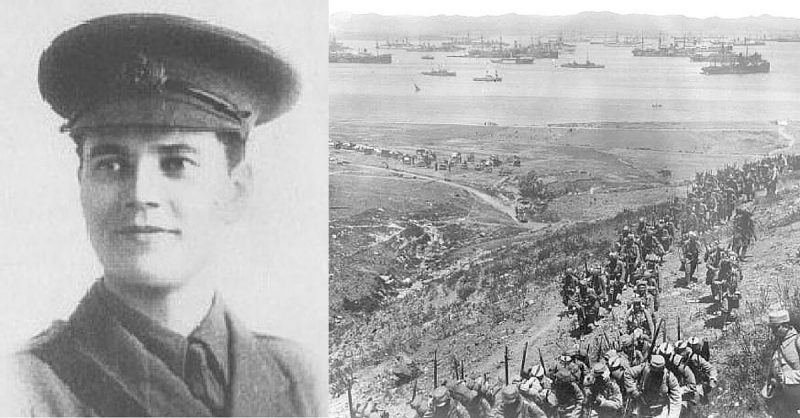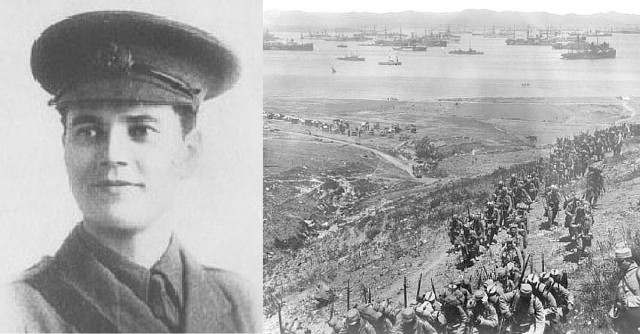A 24-year old soldier was one of the unsung heroes of World War One’s Gallipoli campaign. Arthur Tisdall was honored with the Victoria Cross for going beyond official orders and rescuing injured and wounded soldiers who laid on the shores of Gallipoli.
On the first day of the Gallipoli landings (25 April 1915) at V Beach, Gallipoli, during the landing from SS River Clyde, Tisdall heard wounded men on the beach calling for help. The men were under heavy machine gun fire from entrenched Turkish forces. He jumped into the water, and pushing a boat in front of him, went to their rescue. He found, however, that he could not manage alone, but managed to enlist the help of first one, and then three more naval personnel. They made five trips from the ship to the shore and were responsible for rescuing several wounded men under heavy and accurate fire, until darkness forced them to stop.
He jumped into the water, and pushing a boat in front of him, went to their rescue. He found, however, that he could not manage alone, but managed to enlist the help of first one, and then three more naval personnel. They made five trips from the ship to the shore and were responsible for rescuing several wounded men under heavy and accurate fire, until darkness forced them to stop.
Tisdall was told that he would be awarded the medal for his actions, but he didn’t receive his Victoria Cross while he was alive – he was killed just a week after he rescued the soldiers. He had written to his family telling them of the devastation at Gallipoli but didn’t mention that he was to receive the medal.
Comrades said that Tisdall continued to row ashore repeatedly despite being under continuous enemy fire. A week later Tisdall was killed by a Turkish sniper as his division made its way inland into Turkey. Tisdall’s body was never recovered, but one hundred years after he was killed a commemoration ceremony is to take place at the Tower of London, and it will be attended by his descendants. A teenage relative of Tisdall’s said that he was a brave soldier and that they wanted to commemorate his sacrifice.
The Allies’ Gallipoli campaign was a failed attempt to create a southern front during World War One. Troops continued to fight for around eight months before they retreated and pulled out of the country.
Tisdall’s division was the Royal Naval Division (RND), which had been created by the then leader of the Admiralty, Winston Churchill. Many of the division were volunteers or reservists, with some officers, and they went on to fight on the front line. The RND was renowned for its morale and great camaraderie. Its fighters went on to secure a total of eight Victoria Crosses. Sources say that when Tisdall died, many of his comrades cried for his loss.
The RND was notorious for using naval methods even though it fought on land. They used a bell for keeping time, spoke in naval language, and flew the White Ensign. In 1919, the RND was disbanded after a final inspection by the Prince of Wales.

